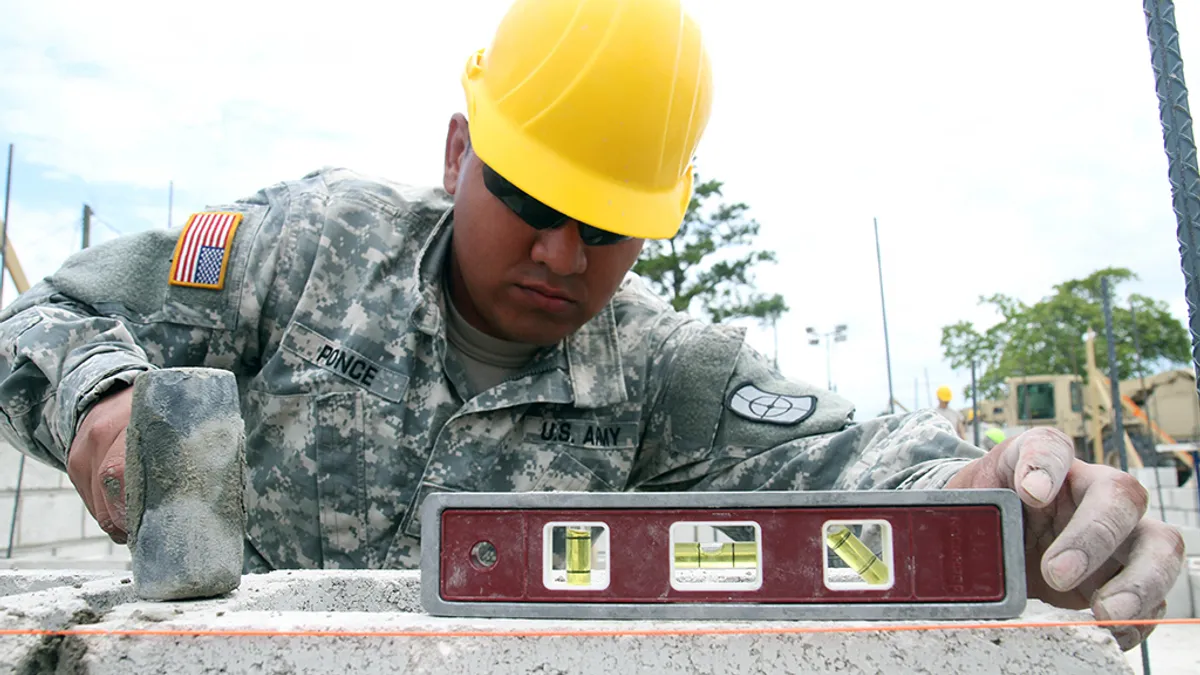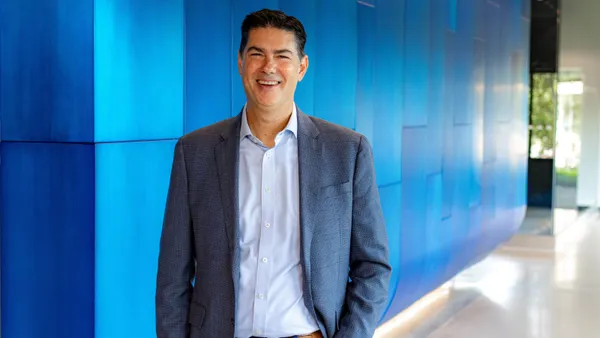Dive Brief:
- New York Gov. Andrew Cuomo, referencing the U.S. Army Corps of Engineers' "tremendous capacity" in a press conference this week, is calling on the federal government to direct the Corps to help states build temporary medical facilitates that will be able to handle the expected rush of coronavirus patients. Sen. Elizabeth Warren (D-Mass.) has also written a letter to President Donald Trump calling for him to direct the Corps to convert or construct new temporary medical facilities.
- Cuomo said that the country's largely private healthcare system isn't set up to quickly scale up in response to the demand that the pandemic is likely to generate. New York state, he said, is going to tap the National Guard, building unions and private developers to find properties — such as dormitories and nursing homes — that could easily be retrofitted to serve as healthcare facilities.
- While New York does not have the billions of dollars it would take to implement a hospital construction program, he said, the state's Department of Health will waive regulations that healthcare systems must typically follow when they initiate their own expansions or construction projects. Cuomo said that hospitals will be able to use their own discretion as to how they will increase their space and capacity when it comes to beds per rooms, space between beds, hallway width and other design choices.
Dive Insight:
Many states, especially ones that have large clusters of coronavirus cases, will likely waive at least some regulations in order to expedite the creation of more patient space.
The Maryland Health Care Commission this week issued Mercy Medical Center an emergency certificate of need so that the hospital can add a 32-bed acute care center in 30,000 square feet of shell space on the 17th floor of its main hospital tower in downtown Baltimore. Mercy expects the $12.5 million cost of the project to be paid for with donor contributions and estimates that construction will be complete within 70 to 75 days.
On March 16, Maryland Gov. Larry Hogan issued an executive order that directed the Maryland Department of Health to work with healthcare providers to increase hospital capacity throughout the state.
General contractor Whiting-Turner, according to Newswise, will perform the work at the Mercy facility and will also provide short-term financing for the project.
Two other contractors, Plaza Construction and Central Consulting & Contracting Inc., are also stepping up to help expedite the construction of new hospital space. The contractors announced this week that they will waive their fees for coronavirus-related projects in Connecticut, Florida, New Jersey, New York and the mid-Atlantic region. The two will also leverage Plaza's partnership with Full Stack Modular and the latter's expertise in modular design and manufacturing.
A Plaza spokesperson said that Plaza and Central Consulting have started working with healthcare systems under the new offer and that the resulting facilities could be either permanent or temporary.
In the past, companies expedited erection of temporary medical facilities using modular construction and prefabrication. In 2011, Johnson Portables manufactured and constructed a 60-bed hospital for St. Johns Regional Medical Center in Joplin, Missouri, in 88 days after a tornado made part of the center unusable.














